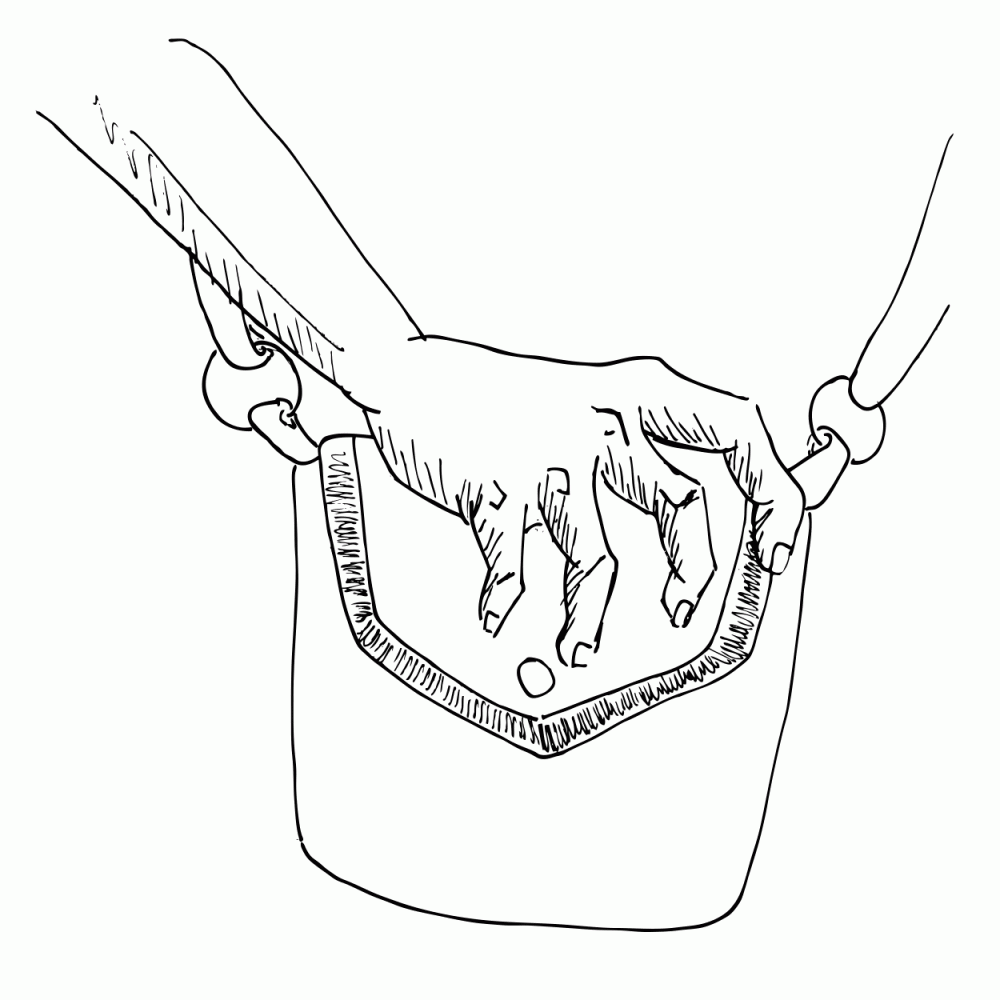Safety and Security in the City: Lessons from a MPD Ride-Along
Luckily, the woman wasn’t dead. But she could have been, had the car been going a little bit faster, had she fallen a little bit harder, had she hit her head on the way down.
When we arrived on the scene, she was sitting up and speaking to an officer, while two more positioned their cars, blue lights flashing, at either end of the block to prevent traffic from driving through. The pedestrian strike occurred at the intersection of 12th and U Street. It was 10:15 on a drizzly Friday night, and I was sitting in a police cruiser. I could already tell that my evening would be far from dull.
Over the next four hours, I would get to glimpse a side of the District that most people don’t see. Big crimes, little crimes, we would investigate them all, listening closely to the little radio crackling next to Officer C. R. Mayor’s elbow.
The extent of my crime fighting was standing sheepishly beside Officer Mayor, a garrulous, seven-year veteran to the force, as he berated a pizza delivery guy for parking illegally in an alley. Instead, my job was watch everything and to listen to Officer Mayor’s complaints about DC drivers and their pedestrian counterparts. Ironically, just moments before arriving on the scene of the pedestrian strike, Officer Mayor had commented on the prevalence of jaywalking and the widespread belief that pedestrians in the crosswalk have the right of way.
While hit-and-runs and pedestrian strikes may not seem as common in the city’s outskirts, they aren’t unheard of. Earlier this semester two women were injured in a hit-and-run on the crosswalk across from the Katzen Arts Center. Eyewitnesses said they didn’t have a walk signal according to The Eagle. No police report was filed according to the Metropolitan Police Department.
***
Jaywalking isn’t the only risky behavior regularly seen around campus. Friday and Saturday nights in particular tend to be prime times for some good old college fun, which can mean accidents and crime.
Junior Chris Muller, for example, enjoys clubbing in northwest D.C. at places like Ultrabar. While he says that Southeast is also reputed to have a good nightlife, he hasn’t really seen it for himself.
“I wouldn’t go alone, mostly because of the stigma that that area is unsafe,” he said. “I would definitely check it out with friends.”
Annie Buller prefers DC9, Velvet Lounge, and the clubs along U Street. The senior usually stays in Northwest because the bars and clubs there are more accessible. But no matter where she’s off to, she says she takes precautions.
“If I’m going to a new place, honestly, I’ll research it. I’ll look it up online, on Yelp or something like that, see what neighborhood it’s in,” Buller said. “I always get directions, and always have them available on my phone in a way that if I were to lose Internet connection I’d still be able to access them.”
But taking precautions isn’t always enough Buller says.
“I was actually pickpocketed while I was out,” she says, recalling being shocked because she kept her bag on her body. “All of a sudden I reached into my bag for my wallet, and it was gone.” She says that’s part of the risk of living in a city though.
***
“I mean, if you are living in a city you should know that while ‘I may have good intentions and my friends may have good intentions,’ there are going to be sketchy people around,” Buller said.
On the metro ride to the police station, a poster reiterating Buller’s advice caught my eye. It depicts a man walking down the road, plugged into his iPod and checking his phone. Underneath is a warning to be aware of one’s surroundings. During the ride-along, Officer Mayor pointed out a man who looked as distracted as the guy on the poster—he seemed completely tuned out from the world, oblivious to the fact that he was mere blocks away from where a kid had been stabbed during a robbery the week before.
Robbery isn’t just restricted to any part of the District though. As Buller found out the hard way, it can happen anywhere. Even on American University’s campus, burglary is one of the most common crimes, with 46 incidents reported to Public Safety in 2011. It comes in second only to alcohol-related offenses.
Reported assault is fairly uncommon on campus though—there were only five instances in 2011. But that doesn’t extend to the District. Just a few hours into my ride-along with Officer
Mayor, we got a frantic call reporting an assault in progress.
Cars darted out of our way as we sped to the scene of the crime, arriving just in time to see one man shoving another while the gangly 911 caller intervened. As we pulled to a stop, the attacker lurched in front of the car. As he tried to get away, his sloppy drunken grin was visible for the brief moment. Then Officer Mayor leapt out of the car, grabbing his arms and pinning his cheek to the hood.
The story poured forth from the agitated victim, a young man standing before us in a muddy T-shirt and boxer shorts. “He kicked my car and then he assaulted me physically,” he exclaimed, his story supplemented with helpful interjections from the caller.
“Who assaults a guy in his underwear? Who does that?” the caller demanded.
Despite protests from the drunken man’s friend, who hurried over to plead on his behalf, Officer Mayor and the cops he called for backup decided they had to bring the perpetrator to the station on a count of simple assault and destruction of property.
That friend, reeking of alcohol but mostly sobered up, arrived a few minutes after us. I was sitting in the lobby while Officer Mayor filed the report and overheard the friend ask an officer behind the desk if there was any way he could bail his buddy out. When the officer said all he could do was wait, he dropped into the vacant seat next to me and took in my AU sweatshirt, backpack, and notebook before asking what in the world I was doing there.
I told him I was with the ride-along program, and that I was in the car when his friend was arrested. He rubbed his large hand over his face. “He’s so stupid,” he complained. “Why does he have to be so belligerent?” Over the course of our conversation he insisted multiple times that his friend wasn’t a violent person. He was, in fact, the nicest guy you could meet. Until he got drunk.
***
Officer Mayor let me out a block from the metro station, and we managed a quick good-bye before he was off, his mind already on the next situation. My mind was somewhere else, too: my bed. I wove around the drunken masses as I made my way to the intersection across from the U Street station, mentally calculating the minimum amount of time it would take to get back to school.
As I stood on the corner waiting to cross, exhausted, shoes soaking wet from the puddles that had collected in the sidewalk cracks, and eager to get home, the thought of jaywalking flitted across my mind as I stared impatiently at the stern red hand keeping me stuck to the curb. But then I had another thought, and this time it was of me sitting on the cold, damp ground—dazed, in pain, and blinded by flashing red and blue lights.
So instead of crossing I waited. My heart thudded once, twice, in time with the music blasting from the club behind me. And then the little man blinked on.
Illustration by Emily Guifoil











